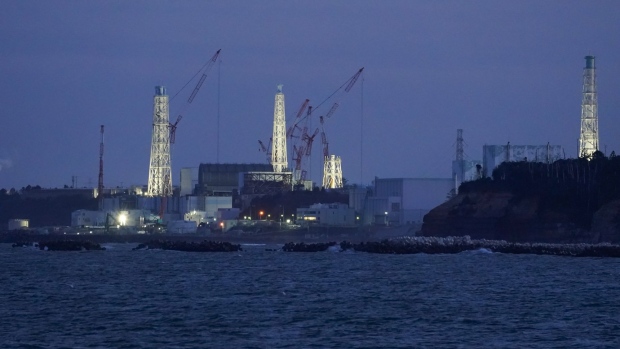Sep 14, 2022
Atomic Watchdog Chief Sees No Fast Track for Japan Nuke Restarts
, Bloomberg News

(Bloomberg) -- Japan’s rigorous procedure for restarting nuclear reactors can’t be shortened, according to the nation’s top atomic watchdog, presenting a potential hurdle in the government’s effort to speed the revival of power plants.
Determining natural-disaster risk at nuclear power plants “intrinsically takes a long time,” making it difficult for operators to make management decisions on how much time and money they are willing to invest, said Toyoshi Fuketa, chairman of the Nuclear Regulation Authority.
“Utilities are being asked to prove something extremely difficult, which is that their facilities are able to bear forces of nature,” Fuketa said in an interview with Bloomberg News. “The process isn’t something that can be dramatically sped up.”
The comments by Fuketa, who is slated to leave his post after serving five years as chief, presents a reality check as Japan makes a dramatic shift back to nuclear power more than a decade after facing one of the worst atomic disasters.
Prime Minister Fumio Kishida’s government wants to restart seven more reactors from next summer onward, and is considering options to expand nuclear energy, as Japan struggles to contend with the impact of extreme weather and a global fuel shortage on electricity supply.
Japan took all of its fleet of nuclear reactors offline after a massive earthquake and tsunami led to a meltdown at Tokyo Electric Power Co.’s Fukushima Dai-ichi plant in 2011. The NRA, which was formed after the accident, oversees a stringent process for resuming plant operations. Since then, the country has restarted 10 out of 33 operable units.
The slow process means Japan needs to rely on decades-old power plants to keep the grid stable. The country has already seen several instances of electricity supply emergencies this year, including in March when unusually cold weather nearly resulted in a blackout in Tokyo.
Critics have attacked the regulations for drawing out restart schedules, with utilities waiting for years before their reactors can operate again. Power companies face other challenges, including lawsuits from citizen groups that don’t want atomic plants operating in their backyard.
Several lawmakers in Kishida’s ruling party have proposed allowing nuclear reactors that have passed safety measures to be turned online, even if they haven’t implemented other requirements such as adding facilities to take over operations at the plant in the event of a terrorist attack.
But Fuketa says that the regulatory body won’t be swayed by calls from the lawmakers. “Our job as a regulator is to not be influenced by an ongoing debate on whether to use or not use nuclear power,” he said.
©2022 Bloomberg L.P.








